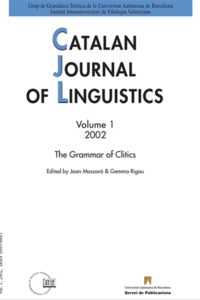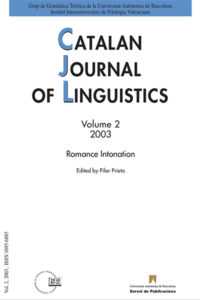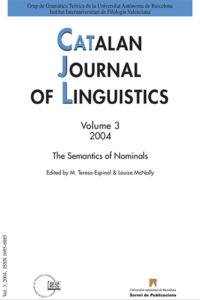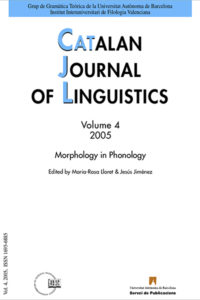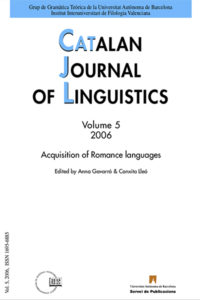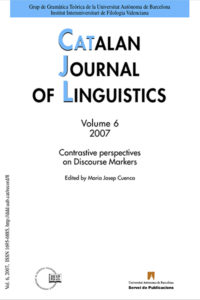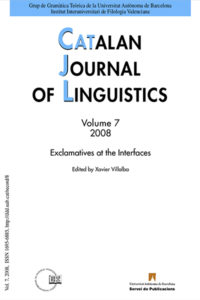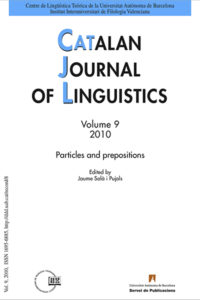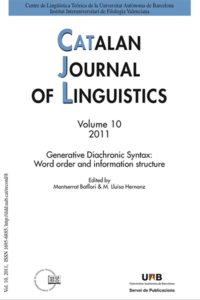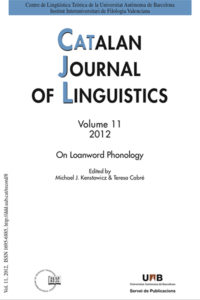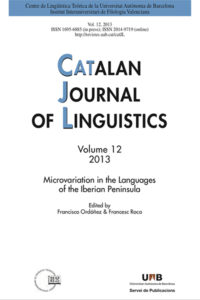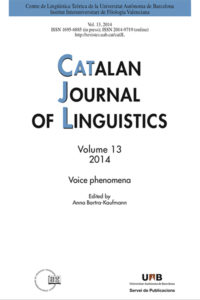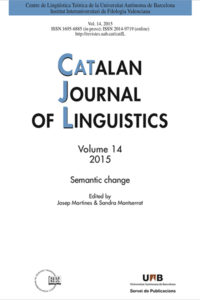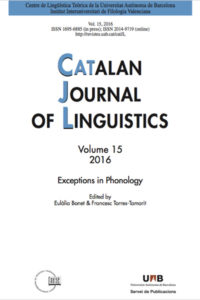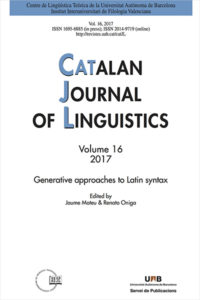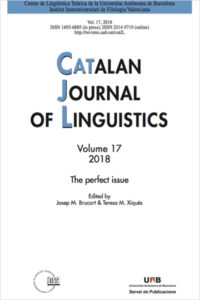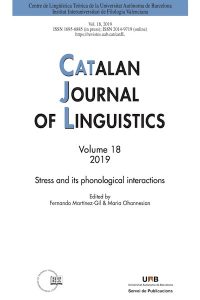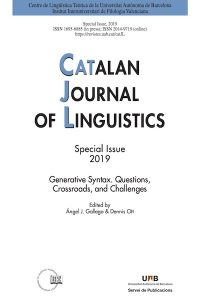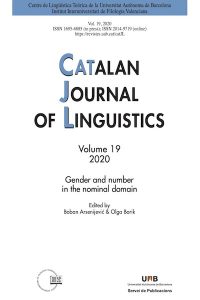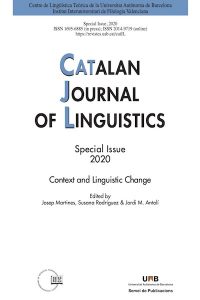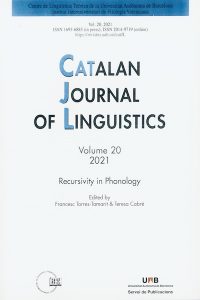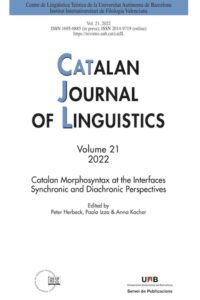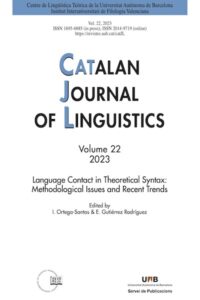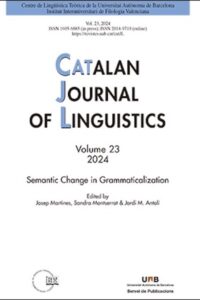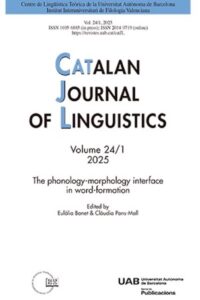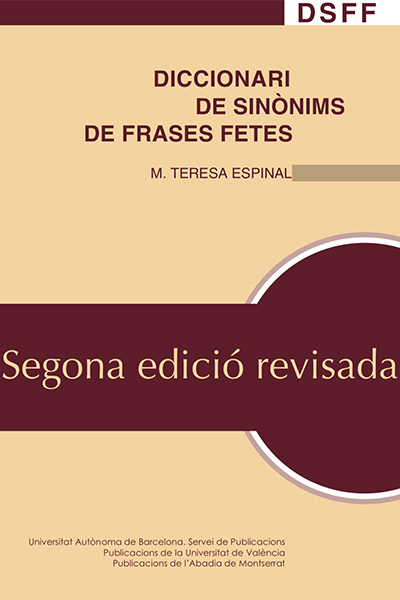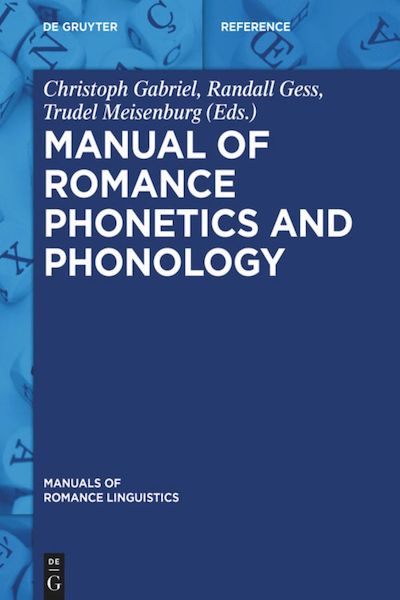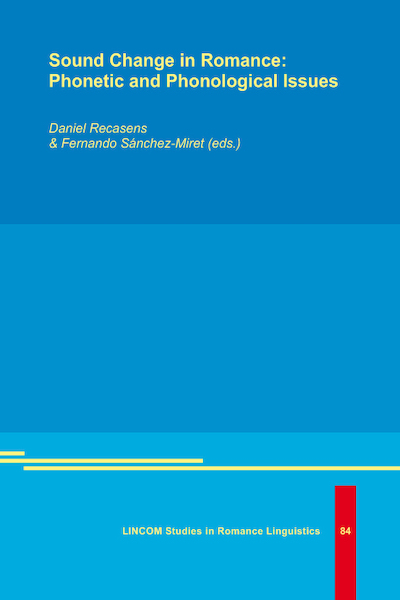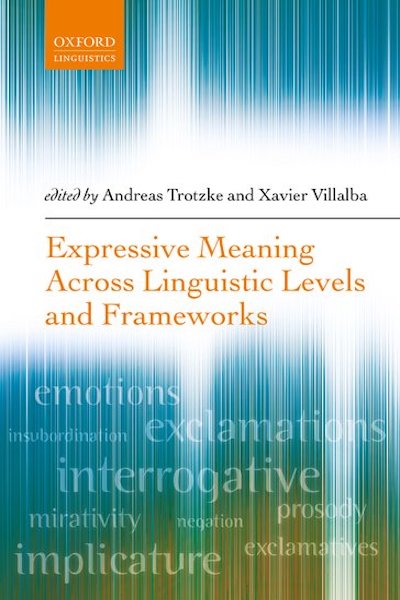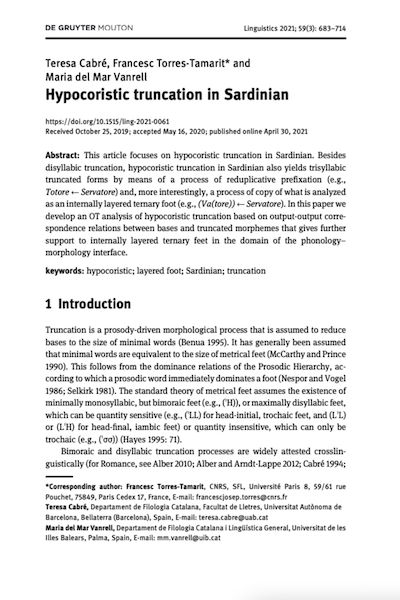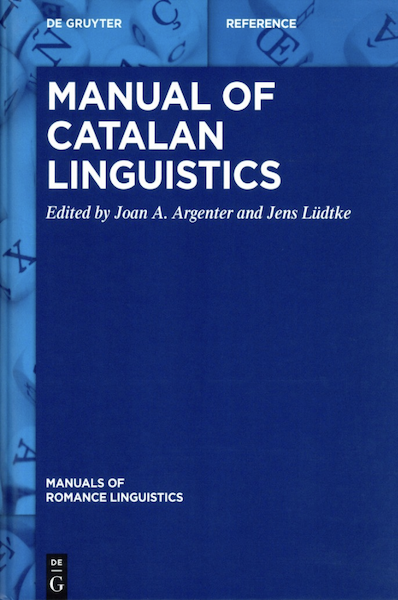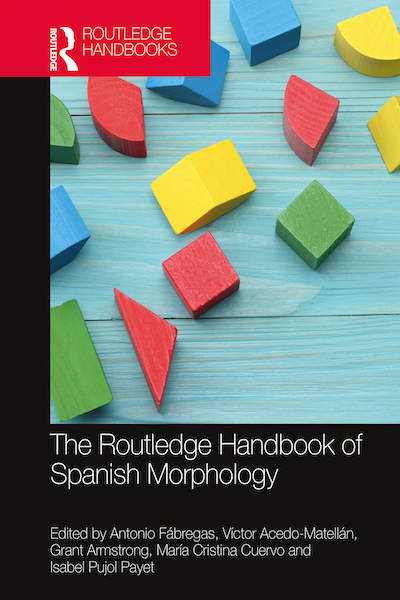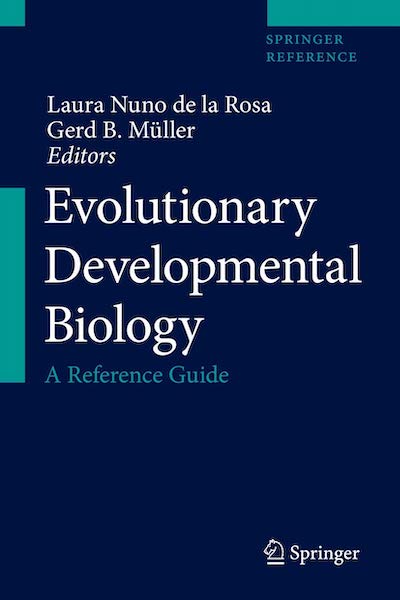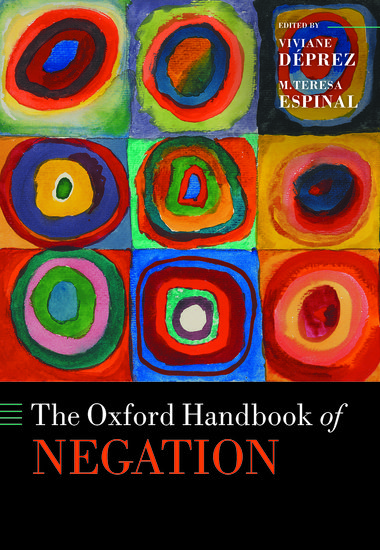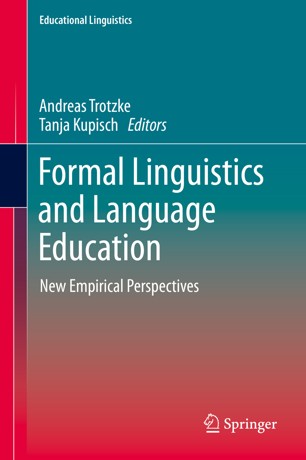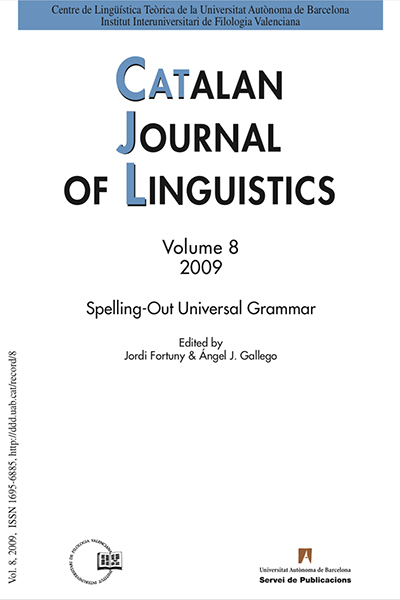
Autors:
Jordi Fortuny & Ángel J. Gallego (eds.)Títol:
Spelling-out Universal GrammarEditorial: Universitat Autònoma de Barcelona, Servei de Publicacions
Col·lecció: Catalan Journal of Linguistics #08
Data de publicació: 2009
Pàgines: 191
Text complet
This volume offers a collection of brief and orginal articles that aim at developing the minimalist approach to language. In this introduction, we would like to discuss certain issues concerning the Minimalist Program and the concept of Universal Grammar as well as to present the contributions of the volume.
The term minimalism is typically associated to certain artistic tendencies whose work is said to be stripped down to its most fundamental features. In the linguistic agenda developed by Noam Chomsky and others since the early nineties, this term is endowed with the same aesthetic concern of searching for the most fundamental features of grammatical theory, but it crucially adds a substantive commitment to investigate to what extent language is—in a sense we clarify below—a perfect system.
In Martin & Uriagereka (2000) this bifurcated path to pursue the Minimalist Program (MP) is emphasized by establishing a distinction between methodological minimalism and substantive minimalism. The methodological facet is concerned with the “theory of language” under construction, whereas the substantive facet is concerned with how well designed “language itself” is. Methodological minimalism seeks those components of a linguistic theory that are redundant, stipulative, and idiosyncratic, in order to eliminate or reformulate them in the form of parsimonius, well-grounded, and general principles. Substantive minimalism explores whether an alleged property of language is a genuine property or an apparent property, and if genuine, whether it satisfies the Strongest Minimalist Thesis—SMT (see Chomsky 2000)—, i.e., whether it is an optimal solution to the requirements imposed by the external systems.

